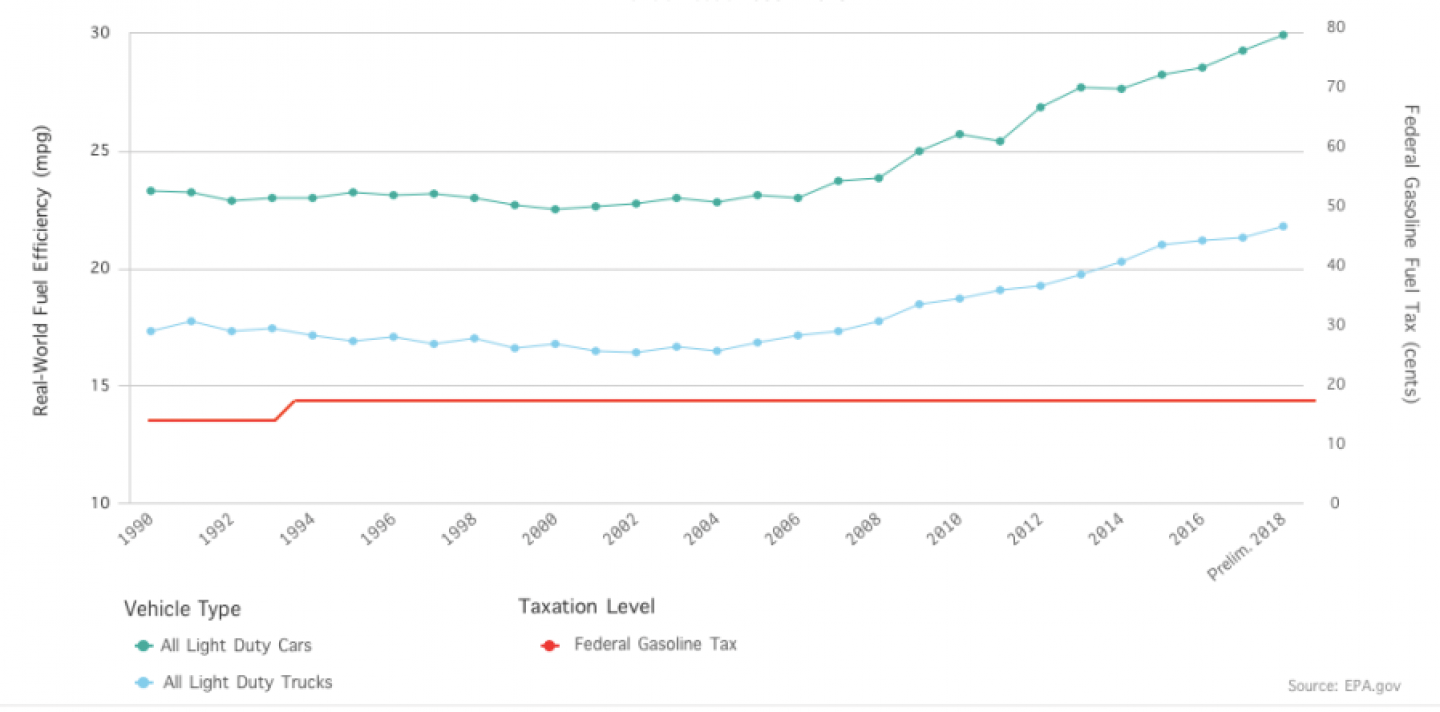The Revenue Failure of the Highway Trust Fund: Why the Gas Tax Is Obsolete
Bottom Line: If policymakers want to continue using the Highway Trust Fund as a general-purpose transportation account, it must be funded properly. Auto manufacturing innovation has rendered the gas tax obsolete. Fuel taxes, therefore, must be phased out and replaced for the sake of fund solvency, taxpayer fairness, and road conditions.
Two major problems are sinking the Highway Trust Fund: a revenue problem and a spending problem.
If highway taxes are supposed to be considered pay-as-you-go, the country must actually pay as it goes. Electric vehicles do not pay at all. Hybrids pay very little. Even traditional vehicles are paying less and less because of innovation. In addition, the imprecise gas tax causes even those who do pay to pay disproportionately on the basis of their fuel consumption alone rather than accounting for weight or miles driven. These are fairness concerns as much as they are revenue concerns. Ultimately, they display shortcomings of taxing fuel.
All drivers have historically paid for road use, no matter what they drive. A gasoline tax simply offers an efficient and electric loophole that Congress never intended to make.
The report makes several recommendations to replace the gas tax and fund the Highway Trust Fund:
- Congress must recognize where its policies are counterproductive or in conflict. Presently, CAFE and other standards continue to push the automotive industry toward higher fuel efficiency. With this policy in place, it directly reduces revenue for the Highway Trust Fund. An efficiency-neutral funding policy would reconcile this.
- Congress must make an innovation-proof revenue policy so that the same crisis is not visited upon us in 20 years. Policymakers must think of how innovation is likely to occur and do their best to establish fair, broadly applicable, and effective user fees. This means taxing the vehicle itself or the miles driven, rather than some minor factor such as fuel, which is proven to change.
- Congress should set a definitive deadline for the federal fuel tax to sunset, whether it is 5, 10, or 15 years. With the endpoint slated, some modest tax increase is needed.
- Some form of a mileage tax should be implemented. Whatever form Congress decides must have an implementation date far enough in the future to be practical, and it must give sufficient notice to all drivers.
Read the full study here.
Fuel Efficiency vs. Fuel Tax
Findings:
- The fuel tax has not kept pace with the fuel efficiency of cars and trucks, especially with the advent of hybrid and electric models. As a result, the Highway Trust Fund faces a significant revenue problem.
- If policymakers want to continue using the Highway Trust Fund as a general-purpose transportation account, it must be funded properly.
- Fuel taxes, therefore, must be phased out and replaced for the sake of fund solvency, taxpayer fairness, and road conditions.
Read the full study here.





